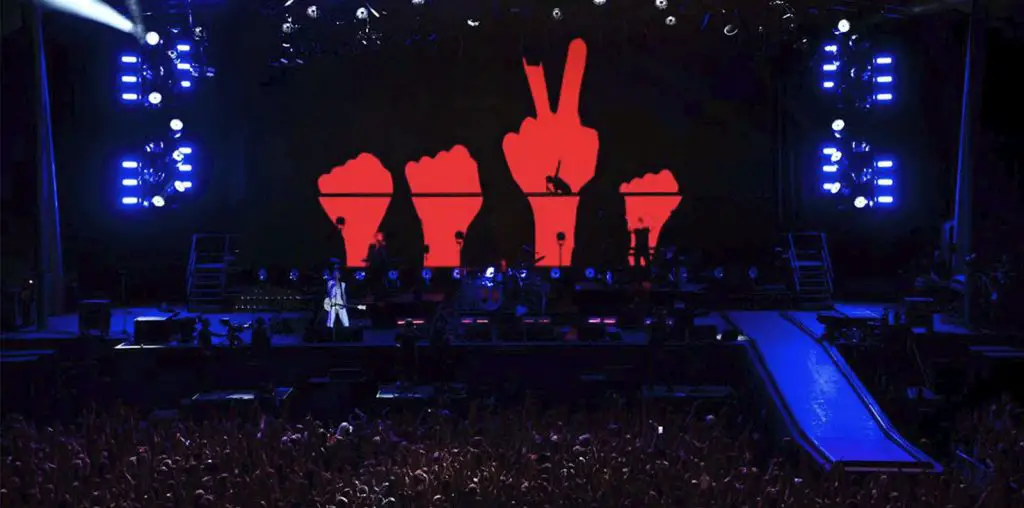
In 1962, four of Italy’s top filmmakers joined forces to produce “Boccaccio ’70,” an anthology of four short films—ranging from 40-50 minutes—cut in the mold of Giovanni Boccaccio, a 14th century Italian author and poet, most famous for “Decameron.”
As a whole, the film is broken up into four Acts, each Act helmed by a prominent Italian filmmaker. The trials and tribulations of men and women in love, or lack thereof, and the male libido, are the common themes that unites the four stories, independent of one another in both ideas and characters.
First up is “Renzo & Luciana,” Mario Monicelli’s ode to working class lovers and the troubles they face in their day-to-day lives. It concerns Luciana, a typist working for a firm that forbids its employees from getting married, having secretly married Renzo, a hot tempered romantic who wants nothing more than to express his love to his new bride in public. They are staying in cramped quarters with Luciana’s family while they work to save money for their own flat. But Renzo, ever short tempered, can’t stand living there; he’d rather live on the street, and openly express his love—both physically and mentally—to Luciana than to hide away in a tiny room buried in a tiny apartment.
“Renzo & Luciana,” which was edited out of the original international release and appears in America for the first time on this DVD, is a sweet, at times charming, story about young lovers overcoming the hurdles of life that love alone cannot overcome. Monicelli’s direction is subtle and nuanced, and the performances by Marisa Solinas and Germano Gilioli are top notch. Solinas is a woman whose cuteness is on par with “Amelie’s” Audrey Tautou. As Luciana, she embodies a woman caught between the desire to express her love to her husband and the will to suppress her love while chasing a higher goal: making enough money to get their own apartment.
Act II, Federico Fellini’s “The Temptation of Doctor Antonio,” is worth the price of admission alone. A satirical examination of censorship and sexual repression, it follows Doctor Antonio (Peppino de Fillipo), a zealot who’s made it his life’s mission to abolish the world of overt sexuality. But when an enormous billboard of an extremely attractive woman (Anita Ekberg) is erected outside his apartment, he becomes obsessed with the image.
“The Temptation of Doctor Antonio” is a work of a master filmmaker at the heights of his powers. Humorous, humane, and absurd, it is a cross between “The Scarlet Letter” and “Don Quixote.” And the story’s psychology is startling. The roots of Antonio’s fundamentalist fervor, although exposed in a vague manner, infers everything through fragmented dialogue—sometimes through simple words. This is a complex short film, and a true work of art, and it ranks near the top of Fellini’s canon.
Act III, “The Job,” Luchino Visconti’s lighthearted contemplation on a troubled marriage, is a taut examination of a seminal moment in the lives of a married couple. Count Ottavio is a wealthy Howard Hughes-esque man whose libido is stronger than the ties that bind him to his wife. When tales of his sexual exploits with call girls hits the front pages of newspapers across Italy, he must reexamine his devotion to his wife and convince her that he is worth keeping.
“The Job” is a meticulous, witty character study carried by strong acting, from Romy Schneider and Tomas Milian respectively, and direction so adept that the short is completed devoid of its director’s fingerprint. The camera work serves to augment the story, not to tell it, and, although usually moving, it rarely draws attention to itself. Having never seen a film by Visconti, this reviewer is eager to rush out and explore his larger works, based on the merit of this wonderful short film.
The final act, Vittorio De Sica’s “The Raffle,” stars Sophia Loren, looking hotter than ever, as an operator of a shooting gallery in a traveling carnival who’s offered her sexual services in a raffle. Dozens of men in the small town scoop up the tickets and anxiously wait to find out who wins, while Loren finds love with a man and reconsiders her stakes in the raffle.
Like the other shorts, “The Raffle,” is a strong story about love and sexuality, it is a fantastic piece, and even, in its own way, champions the underdog.
“Boccaccio ’70,” taken either as four short stories or as a whole, is a masterpiece of world cinema. It is one of the greatest films this reviewer has ever had the privilege of watching. Each story is as strong as the next, which is the most awe-inspiring feat performed by these masterful storytellers. There are no weak links in this chain, no stories worth skipping.
No Shame Films has done a tremendous job with this DVD. Spread over two discs, each disc containing two acts of the film, the second disc containing 28-minutes of bonus material, the transfer (widescreen, 1.66:1) is gorgeous. In addition to amazing sound and video, the set also includes a huge insert booklet, a reprint of the original US press book. No Shame Films has done what few indie distributors have pulled off in the past, and that is to present a movie in a set worthy of carrying the title it offers. This set easily rivals discs released by The Criterion Collection, which is the highest praise one can hoist upon a DVD.
